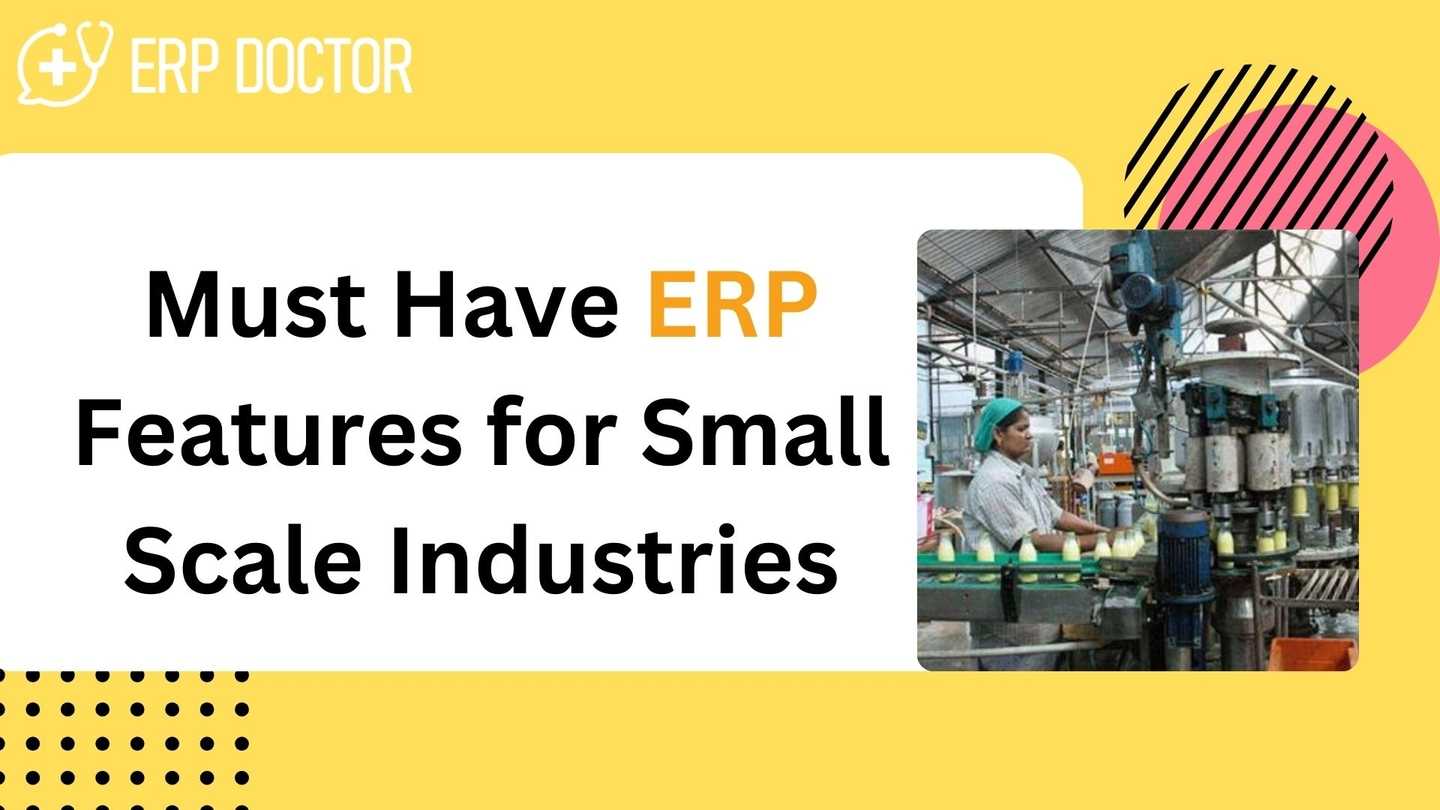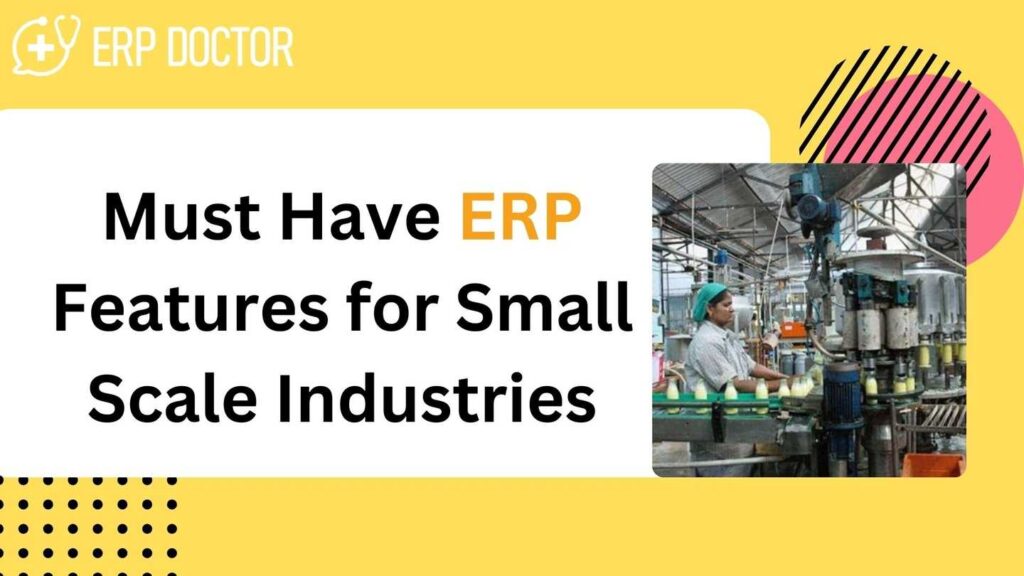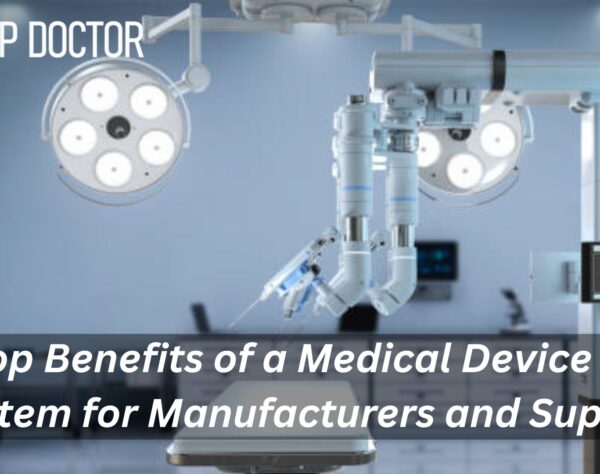
Must Have ERP Features for Small Scale Industries

Top ERP Features For Every Small Business Needs
In today’s competitive market, small-scale industries need to leverage every tool at their disposal to stay ahead. One of the most effective ways to do this is by implementing an Enterprise Resource Planning (ERP) system. An ERP system can streamline operations, improve efficiency, and drive profitability. Here’s a look at how ERP solutions can benefit various small-scale industries and what essential features to look for.
Retail Industry: Top ERP Features for Streamlining Inventory and Sales
For small retail businesses, managing inventory and sales can be a complex task. An ERP system helps retailers by providing real-time inventory tracking, automating sales processes, and integrating with e-commerce platforms. Key features include:
- Real-Time Inventory Management: Avoid stockouts and overstock situations by tracking inventory levels in real time.
- Point of Sale Integration: Seamlessly connect with POS systems to streamline transactions and manage sales data.
- Customer Relationship Management (CRM): Enhance customer service and loyalty through better customer data management.
Benefit: Improved inventory accuracy and streamlined sales processes can lead to increased customer satisfaction and higher sales volumes.
Manufacturing Industry: How ERP Features Improve Production Efficiency
Small manufacturing businesses often face challenges in managing production schedules, quality control, and supply chain logistics. ERP systems offer robust solutions to these problems:
- Production Planning: Optimize production schedules and resource allocation to maximize efficiency.
- Quality Management: Monitor quality control processes and maintain compliance with industry standards.
- Supply Chain Integration: Coordinate with suppliers and manage procurement processes more effectively.
Benefit: Enhanced production efficiency and better quality control can result in cost savings and improved product quality, driving profitability.
3. Construction Industry: Managing Projects and Budgets
In the construction industry, managing multiple projects, budgets, and schedules can be overwhelming. ERP systems can simplify these tasks with features such as:
- Project Management: Track project progress, manage budgets, and allocate resources effectively.
- Contract Management: Manage contracts and subcontracts to ensure compliance and streamline payments.
- Cost Tracking: Monitor expenses and compare them against budgets to prevent cost overruns.
Benefit: Improved project management and cost control can lead to timely project completion and increased profitability.
4. Food and Beverage Industry: Ensuring Compliance and Efficiency
Small businesses in the food and beverage sector need to manage inventory, compliance, and production efficiently. ERP systems provide:
- Inventory Management: Track ingredients and finished goods to reduce waste and avoid stockouts.
- Regulatory Compliance: Ensure compliance with food safety regulations and standards.
- Production Planning: Optimize production schedules to meet demand and reduce operational costs.
Benefit: Better inventory management and compliance can enhance operational efficiency and profitability.
5. Healthcare Industry: Improving Patient Care and Operations
For small healthcare providers, managing patient records, appointments, and billing can be challenging. ERP systems offer:
- Patient Management: Streamline patient records, appointment scheduling, and billing processes.
- Inventory Management: Manage medical supplies and equipment efficiently.
- Compliance Management: Ensure adherence to healthcare regulations and standards.
Benefit: Improved patient care and streamlined operations can lead to increased efficiency and profitability.
6. Professional Services: Enhancing Project and Financial Management
Small professional services firms, such as legal or consulting firms, benefit from ERP systems in the following ways:
- Project Management: Track project timelines, milestones, and deliverables to ensure client satisfaction.
- Financial Management: Automate billing, invoicing, and financial reporting to improve cash flow.
- Resource Management: Allocate resources effectively to maximize productivity.
Benefit: Enhanced project and financial management can lead to better client outcomes and increased profitability.
For small-scale industries, an ERP system like SAP Business One isn’t just about managing daily operations—it’s a key to driving growth and profitability. With its tailored features, SAP Business One streamlines processes and enhances efficiency, making it a valuable asset for any small business in retail, manufacturing, construction, food and beverage, healthcare, or professional services.
Visit ERP Doctor for Expert ERP Solutions and Support
Want to speak to an expert? Fill in the form below, and we will be in touch with you shortly!







